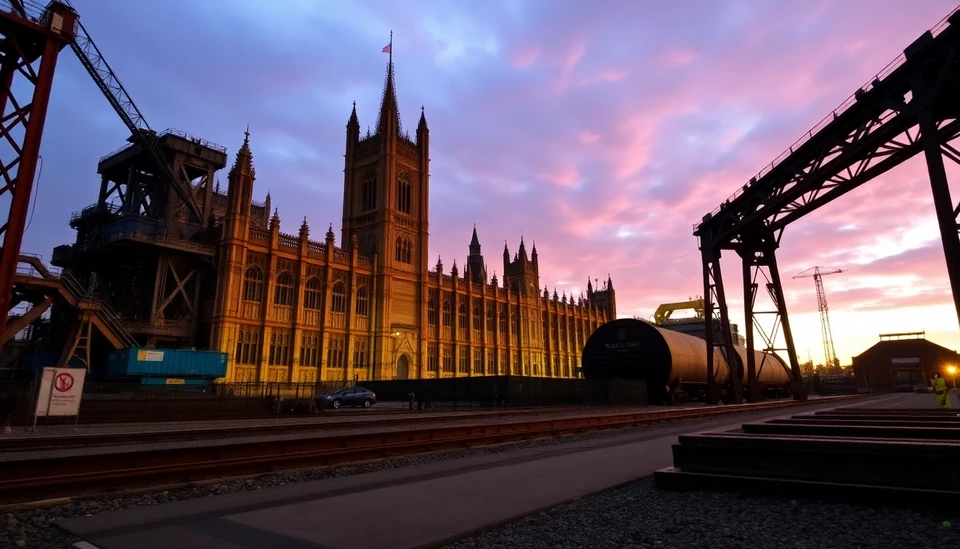
In a remarkable turn of events, the UK Parliament has been urgently recalled from its recess to hold discussions regarding the potential nationalization of British Steel. The unprecedented move follows mounting concerns about the future of the beleaguered steel industry in Britain, amid plummeting prices and operational challenges faced by major companies in the sector.
This extraordinary session, set to take place next week, underscores the government's commitment to ensuring the sustainability of a vital industry that has been a cornerstone of the British economy for over a century. Stakeholders, including industry leaders, unions, and government officials, have expressed deep concern over the viability of British Steel amid a backdrop of rising energy costs, international competition, and the ongoing impacts of Brexit.
In recent months, British Steel has struggled to navigate an increasingly tough market environment. With the company's prospects dimming, discussions surrounding its potential nationalization have intensified, with proponents arguing that state intervention could provide the necessary support to stabilize operations and safeguard thousands of jobs.
The nationalization debate has garnered widespread attention not only for its economic implications but also for its political ramifications. Critics of the government are questioning its strategy for managing the crisis, while supporters of the nationalization effort are citing the need for strategic control to protect key industries from market volatility.
During the parliamentary session, MPs are expected to review various proposals, including financial aid packages and restructuring plans. Some lawmakers have suggested that an infusion of public funds could enable British Steel to invest in greener technologies, aligning with the UK’s broader environmental goals while securing its manufacturing base.
Trade union representatives have voiced strong support for nationalization, warning that without government intervention, the collapse of British Steel would have devastating consequences for communities dependent on the industry. The unions are advocating for a plan that not only preserves jobs but also commits to sustainable practices moving forward.
Meanwhile, the steel-making sector is at a critical juncture, with companies vying for government assistance as they grapple with the sweeping changes brought about by climate policies and shifting market dynamics. The upcoming parliamentary discussions promise to shed light on the UK's industrial strategy and the future of manufacturing in the post-Brexit landscape.
The situation remains fluid, with many stakeholders anxiously awaiting the outcomes of the debate. As the public and private sectors navigate the uncertain waters of economic recovery, the implications of the Parliament's decisions could resonate far beyond the steel industry, potentially setting a precedent for future government intervention in struggling sectors.
As preparations for the parliamentary session intensify, the government is under pressure to outline a clear vision for the next steps in supporting British Steel while balancing the need for fiscal responsibility and political accountability. Analysts predict that the decisions made in the coming days will have profound implications for the UK's industrial landscape for years to come.
<#>BritishSteel #Nationalization #UKParliament #SteelIndustry #EconomicPolicy #TradeUnions #Manufacturing #Brexit #GreenTechnology #JobSecurity
Author: John Harris




